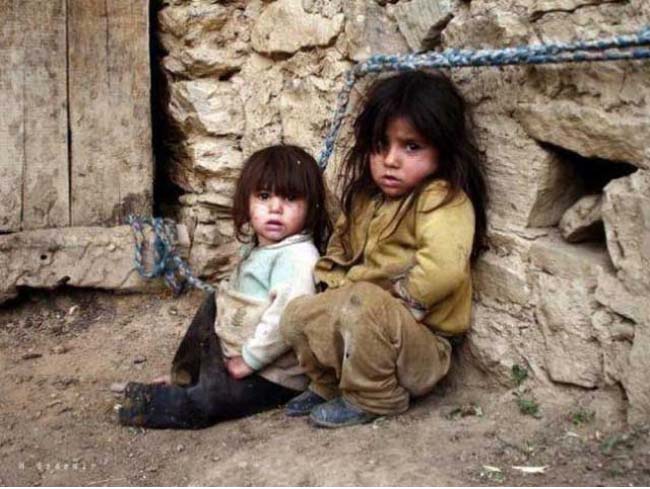The war in Afghanistan, preceded by decades of conflict, has had a profound impact on many families. Insurgency and enduring poverty have made life particularly challenging for millions of people. Many families who fled the country in earlier years have gradually returned, but are greeted with poor infrastructure, including a lack of health-care facilities, substandard sanitation and not enough clean water.
Despite some progress, human security remains Afghanistan’s major challenge. Some districts remain inaccessible due to continuing anti-government activity. Other areas of the country have also experienced deterioration in the security situation, and 2015 saw the highest number of civilian casualties since the UN started keeping records. Likewise, law and order has been a national challenge, with high-turnover rates, lack of professionalism, and a decreasing presence of international security forces.
Afghanistan faces an uncertain economic outlook. Growth has slowed considerably and unemployment is on the rise. Ongoing insecurity hampers investment and encourages many of the most productive and well-educated citizens to migrate.
Fifteen years have passed and things do not seem to have improved much. Afghanistan still ranks third in the world in corruption according to Transparency International, which contributes to its extreme poverty. Although education is more widely available, the quality does not meet world standards. The teaching profession is not attractive because of the low pay. Despite improvements in the health sector, health indicators still remain below the average for low income countries.
As China, India, and other developing countries are advancing at a rapid rate, Afghanistan, despite the world’s military and financial investment, is being left behind.
According to World Bank, Afghanistan ranks 177th in terms of regulation quality and efficiency for investment, with no improvements during the past year. The number of new firm registrations in 2015 remains well below that of 2012-13. This shows the difficulties in launching new businesses in Afghanistan. The fact that the country has made no improvements over the past 15 years shows that the government is failed to create jobs opportunities—or creating systems for entrepreneurships. The reason is that government officials do not rely on taxes to stay in office – they rely on aid.
Foreign aid also causes the Afghan government to underperform. Even in the best-case scenario, when there is no corruption, aid money is spent in providing public goods including healthcare, infrastructure, security, and education. Afghans elect their leaders in a democratic process to provide public goods for them; there is no point in elections if these goods are provided by foreign money. Furthermore, mismanaged aid, hinders democracy in Afghanistan.
It is believed that Poverty actually kills more Afghans than those who die as a direct result of the armed conflict either accidental, or inevitable; it is both a cause and a consequence of a massive human rights deficit. The deficit includes widespread impunity and inadequate investment in, and attention to, human rights. Patronage, corruption, impunity and over-emphasis on short-term goals rather than targeted long-term development are exacerbating a situation of dire poverty that is the condition of an overwhelming majority of Afghans.
Decades of warfare have also had repercussions on traditional, community-level, dispute resolution mechanisms that have significant financial and other implications for the rural poor. Frequently, personal enmities and local disputes, particularly in the context of access to, or use of, natural resources such as land, water, forests or pastures, lead to outcomes that are disadvantageous to the least powerful.
The high inflation during winter, which seems that the cartels and officials have turned a blind eye to it, is unfair. The sporadic or fortuitous attention from the government will not mitigate the backbreaking burden of the poor citizens. Hence, the government is supposed to stop paying lip service to the challenge and take a serious step to end the problems.
The rich are too busy to think about their poor neighbors and humanitarianism is hardly felt in the people’s social life. In other words, the schism between the rich and the poor has widened and those who have buried themselves in the flamboyant world of wealth will not be touched with the excruciating pain of their underprivileged fellows. Those who eat sumptuous meal and live in expensive apartments and skyscrapers, have never, actually, imagined about the empty stomachs of their neighbors and their numbness caused by cold weather. Most probably, same is the case with high-ranking officials. The officials who ride on the most updated and costly vehicles guarded by armed bodyguards, their families lack nothing and their children study in foreign countries, never bothered themselves to help or visit the poor. So, one will conclude that injustice is rampant across the country.
The heads of National Unity Government, who assured the citizens during their electoral campaigns that the economic agenda would alleviate the financial constraints, are supposed to obviate the problem via putting their plans into practice. The lurid reports of the country’s economic challenges and mass unemployment, which were affected negatively by the withdrawal of foreign forces, investors and some of the NGOs, should make the officials seek for a proper solution and effective mechanism.
Home » Opinion » Poverty Persists
Poverty Persists
| Hujjatullah Zia

